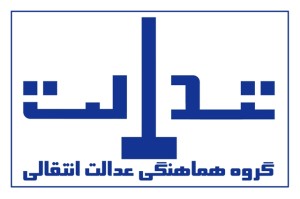Press Release
Transitional Justice Coordination Group (TJCG)
14 January 2013
Conference Hall of Afghan Civil Society Forum (ACSF)
Afghanistan is passing through one of the most critical juncture of its history and it is located in a crossroad of choice, return to a violent past or the transition to a just and sustainable peace.
From one hand, after four decades of bloodshed discussion, negotiation, ceasefire and peace and reconciliation has become one of the most critical objective and a pressing needs of the people, but on the other hand, the pressure from the Taliban and other armed opposition can increases threats and may lead to subversion of the achievements of the past decade in Afghanistan.
As of the government lack of competent and effective management, Taliban are trying to widen the gender, political, social, cultural, ethnic, class and linguistic fragmentation between the people and more than any other time use it in the interest and for the revival of its authoritarian regime.
After several attempts to secure peace which until now has not led to tangible results for the people – the government of Afghanistan adopted a new policy which is called the “Peace Process Roadmap to 2015”, it stated that the five steps to achieve these goals are: to end war, ceasefire; reintegration of all armed oppositions, encouraging them to establish their political organizations in order to share the power structure and to urging support of the international community from this plan.
However, in the Paris conference, the armed oppositions clearly ruled out the mentioned roadmap, and the Taliban representatives explicitly asserted that they don’t recognize the Constitution of Afghanistan and will not negotiate with the puppet government in Kabul. The
Taliban recent stand has confused government officials, as the Foreign Minister of Afghanistan described the opening of the Taliban Representative Office in Qatar “very dangerous”. This dubious approach of the government and its international partners has lost the trust of people on any kind of reconciliation.
On the other hand, the government is still pursuing this plan and strives to unilaterally implement it by giving high concessions.
Release of Taliban prisoners by the Afghan and Pakistani governments, removing their name from the UN Security Council and US Blacklist are against Afghanistan`s laws, norms as well as the conventions of international justice. Unconditional release of Taliban will continue the culture of impunity and more than anytime and pose serious threats to lasting peace in the country.
Transitional Justice Coordination Group – made up of 27 national and international institutions understands the sensitivity of this historic landmark in the country because those members of the armed opposition group have been unconditionally released again continued their attacks. Hereby, the TJCG expresses its concern and seriously request the government and civil society, and the international community to demand that:
1. The government should respect the constitution and ensure the implementation of all other enforced laws in the country and should not encourage and promote a culture of impunity by releasing the armed criminals. In fact the files of the arrested suspects, according to the law, court procedures and the final decision should be investigated in order to ensure justice.
2. The Government should immediately put an end to the unconditional release of the Taliban members and the Pakistan government should hand over the Taliban prisoners to Afghan government.
3. The justice sector, particularly the Afghan Supreme Court, having the responsibility for releasing Taliban prisoners is accountable to the people and should provide legal reasons for releasing Taliban without due process, and the parliament as the representative of the people should follow this as the representatives of the Afghan people.
4. The government of Afghanistan should adopt a mechanism for those Taliban who have been already released and ensure that they are not returning to the ranks of terrorists. The government should also clearly say, what kind of impact the release of these terrorist made on the securing peace. Otherwise, all entities and individuals who encourage impunity for the terrorists will be responsible of the consequences.
5. The Government should investigate cases of child prisoners in Bagram base and pursue its results with human rights organizations and the media and the public.
6. If the government is not able to prosecute criminals, Taliban and other prisoners, then in return for its commitment to the Rome Statute of the International Criminal Court (ICC), the government of Afghanistan should seek ICC support to them on trial.
7. The High Peace Council, through the road map 2015 for peace must not violate the constitution, but due to a major policy change on the system, the plan must be submitted to the National Assembly for approval and so that the government respect the redlines and its objectivity during the peace negotiations.
8. According to studies conducted by human rights organizations, peace-loving people of Afghanistan want justice and end impunity, therefore the action plan for the implementation of transitional justice must be central to a peace plan to end forever the four-decade cycle of violence to gain political power.
9. Transitional Justice Coordination Group, as before, once again, ask for the repeal of the amnesty law, National Reconciliation passed by the National Assembly because it promotes the culture of impunity and lead to increased violence and instability.
10. The transitional Justice Coordination Group urges the AIHRC to release the Conflict Mapping Report Immediately, and request the Government of Afghanistan—in particular President Karzai to provide every necessary assistance and support for releasing the Conflict Mapping Report.
11. Civil society, international organizations and the United Nations, more than ever should be aware of their responsibility towards the protection of human rights, respect the constitution and international treaties. UN Human Rights Council should appoint a special rapporteur for Afghanistan.
For more information please contact the below email address: tjcg.afghanistan@gmail.com
SEE PRESS RELEASE HERE: press_release_english_14_01_13


